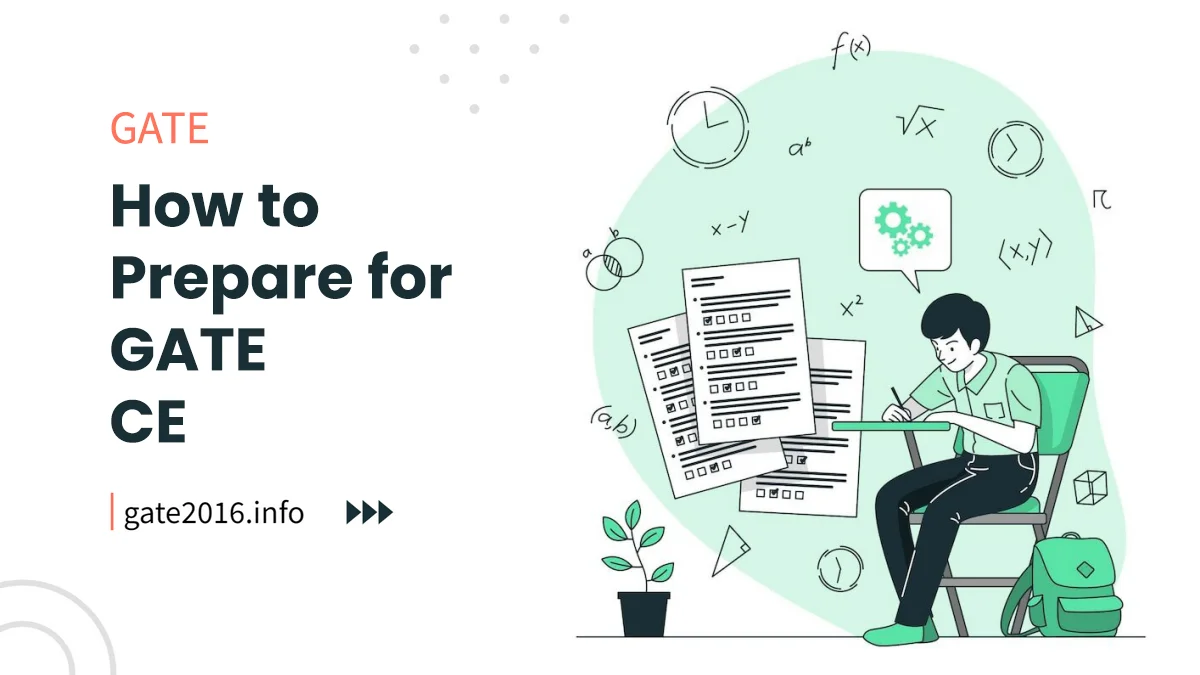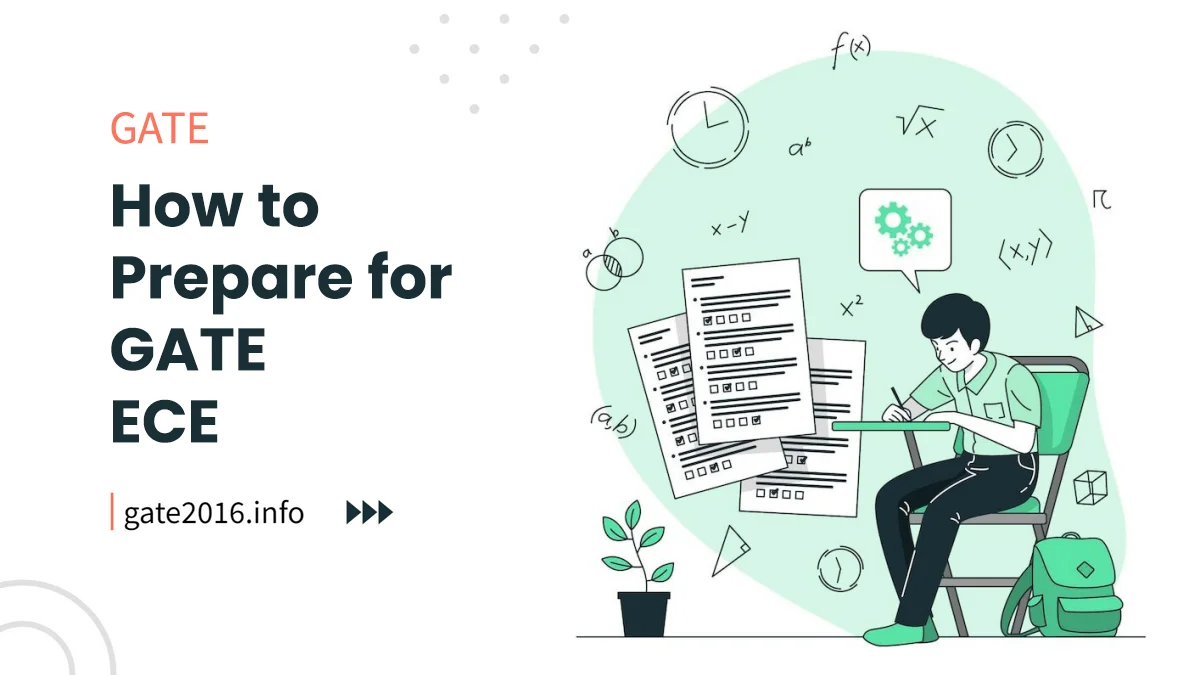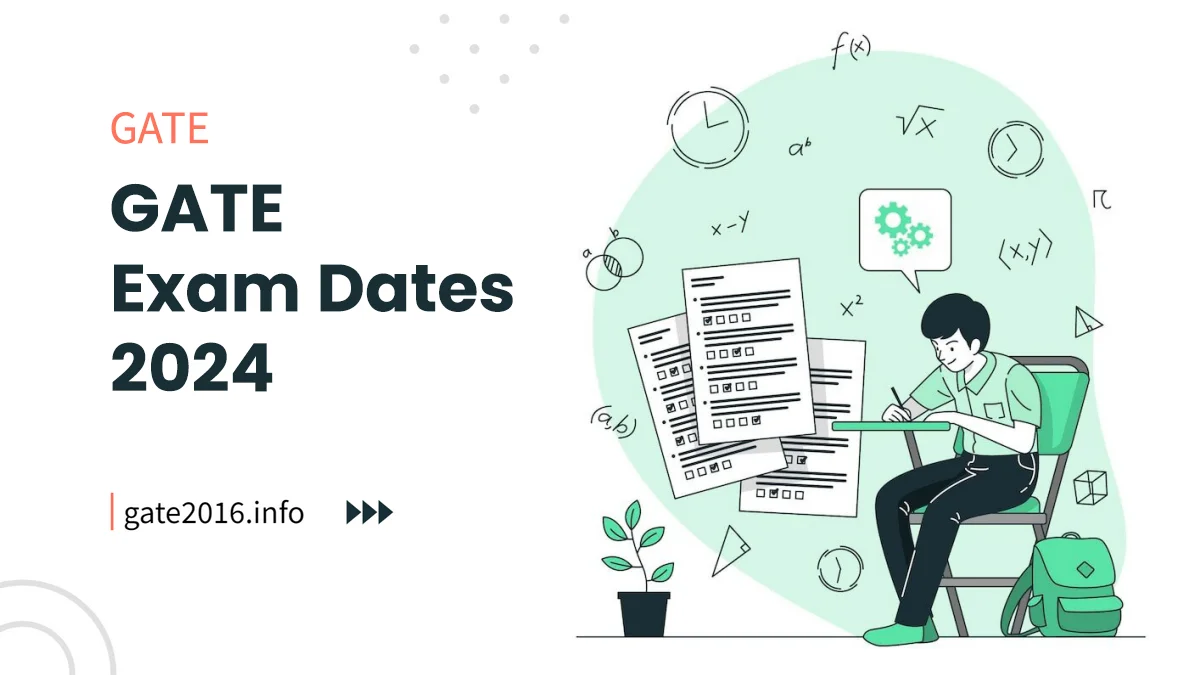Advertisements
Ratings

GATE 2024 CE Preparation – The Graduate Aptitude Test in Engineering (GATE) is a critical examination for aspiring civil engineers seeking advanced education and career opportunities.
Success in GATE requires a well-structured and comprehensive preparation strategy.
This guide provides a step-by-step approach to help you excel in the GATE Civil Engineering examination.
Contents
- 1. Introduction to GATE Civil Engineering
- 2. Understanding the GATE Civil Engineering Syllabus
- 3. Crafting a Structured Study Plan
- 4. Selecting Appropriate Study Materials
- 5. Mastering Fundamental Concepts
- 6. Solving Numerical and Conceptual Problems
- 7. Reviewing Previous Years’ Question Papers
- 8. Taking Mock Tests
- 9. Effective Time Management Strategies
- 10. Implementing Revision Techniques
- 11. Staying Updated with Civil Engineering Advancements
- 12. Managing Exam Stress
- 13. Final Weeks’ Preparation Strategy
- 14. Approaching Exam Day Confidently
- 15. Reflecting on the Exam and Planning Ahead
- Conclusion: Excelling in GATE Civil Engineering
- Additional Resources and References
- GATE Civil Engineering Guidance
- GATE Civil Engineering Preparation FAQs
- GATE Total Information & Guidance
1. Introduction to GATE Civil Engineering
GATE Civil Engineering is the gateway to specialized education and diverse career prospects in the field of civil engineering.
Effective preparation is a cornerstone of achieving success in this highly competitive examination.
2. Understanding the GATE Civil Engineering Syllabus
The GATE Civil Engineering syllabus encompasses a broad range of subjects essential for a deep understanding of civil engineering concepts.
Here’s a detailed breakdown of the syllabus, categorizing subjects and their key topics:
Table 1: GATE Civil Engineering Syllabus Breakdown
| Subject | Key Topics |
|---|---|
| Engineering Mathematics | Linear algebra, Calculus, Differential equations, Probability and statistics |
| Structural Engineering | Mechanics of materials, Structural analysis, RCC and Steel design |
| Geotechnical Engineering | Soil mechanics, Foundation engineering, Geotechnical testing |
| Water Resources Engineering | Fluid mechanics, Hydraulics, Hydrology, Irrigation |
| Environmental Engineering | Water and wastewater treatment, Air pollution, Solid waste management |
| Transportation Engineering | Highway engineering, Traffic engineering, Transportation planning |
| Geomatics Engineering | Surveying, Remote sensing, GIS, Cartography |
3. Crafting a Structured Study Plan
Creating a well-organized study plan is vital for efficient GATE Civil Engineering preparation.
Develop a plan that encompasses all subjects and allocates study time based on their relative importance:
Table 2: Sample Study Plan
| Week | Subjects/Topics | Time Allocation |
|---|---|---|
| 1-2 | Engineering Mathematics | 10 hours/week |
| 3-4 | Structural Engineering | 12 hours/week |
| 5-6 | Geotechnical Engineering | 15 hours/week |
| 7-8 | Water Resources Engineering | 10 hours/week |
| 9-10 | Environmental Engineering | 12 hours/week |
| 11-12 | Transportation Engineering | 8 hours/week |
| 13-14 | Geomatics Engineering | 8 hours/week |
4. Selecting Appropriate Study Materials
The choice of study materials is crucial for comprehensive GATE Civil Engineering preparation.
Combine textbooks, reference materials, online resources, and mock tests:
Table 3: Recommended Study Resources
| Subject | Books | Online Resources |
|---|---|---|
| Engineering Mathematics | “Higher Engineering Mathematics” by B.S. Grewal | Khan Academy, Coursera Mathematics courses |
| Structural Engineering | “Strength of Materials” by R.S. Khurmi and S. Chand | NPTEL’s Structural Engineering courses |
| Geotechnical Engineering | “Principles of Geotechnical Engineering” by B.M. Das | Coursera’s Geotechnical Engineering courses |
| Water Resources Engineering | “Water Resources Engineering” by Larry W. Mays | NPTEL’s Water Resources Engineering courses |
| Environmental Engineering | “Introduction to Environmental Engineering” by Mackenzie L. Davis | Coursera’s Environmental Engineering courses |
| Transportation Engineering | “Highway Engineering” by S.K. Khanna and C.E.G. Justo | NPTEL’s Transportation Engineering courses |
| Geomatics Engineering | “Elementary Surveying” by Paul R. Wolf and Charles D. Ghilani | Coursera’s Geomatics Engineering courses |
5. Mastering Fundamental Concepts
Building a strong foundation in core concepts is essential for success in GATE Civil Engineering.
Focus on fundamental principles within each subject:
Table 4: Mastering Core Concepts
| Subject | Key Concepts |
|---|---|
| Structural Engineering | Analysis of structures, Design of beams and columns |
| Geotechnical Engineering | Soil classification, Bearing capacity, Slope stability |
| Water Resources Engineering | Fluid properties, Flow in open channels, Hydrological processes |
| Environmental Engineering | Water and air pollution, Solid waste management |
| Transportation Engineering | Highway materials, Traffic flow theory, Pavement design |
| Geomatics Engineering | Surveying techniques, Coordinate systems, GIS concepts |
6. Solving Numerical and Conceptual Problems
Balancing numerical problem-solving skills with conceptual understanding is crucial. Practice problems related to:
- Structural Engineering: Design of reinforced concrete beams, calculations of deflections and reactions.
- Geotechnical Engineering: Soil shear strength calculations, analysis of retaining walls.
7. Reviewing Previous Years’ Question Papers
Solving previous years’ question papers provides valuable insights into question patterns, difficulty levels, and exam trends:
Table 5: Benefits of Solving Previous Years’ Papers
| Benefit | Description |
|---|---|
| Understand Question Types | Identify common question patterns and formats |
| Time Management | Practice completing the paper within time |
| Exam Pattern Familiarity | Get comfortable with GATE question patterns |
| Self-Assessment | Evaluate your preparation level and progress |
8. Taking Mock Tests
Taking mock tests under simulated exam conditions is crucial for building confidence and refining time management:
Table 6: Benefits of Taking Mock Tests
| Benefit | Description |
|---|---|
| Exam Simulation | Replicate the actual exam environment |
| Time Management Improvement | Practice allocating time to different sections |
| Confidence Building | Boost your confidence before the actual exam |
| Identifying Weak Areas | Identify areas needing further improvement |
9. Effective Time Management Strategies
Effective time management during the exam is critical. Develop a strategy to allocate time to different sections:
Table 7: Time Management Strategy
| Section | Recommended Time Allocation |
|---|---|
| Engineering Mathematics | 15 minutes |
| General Aptitude | 15 minutes |
| Subject-specific Sections | 75 minutes each |
10. Implementing Revision Techniques
Regular revision is crucial for retaining information. Employ structured techniques to reinforce your understanding:
- Revision Schedule: Allocate time for revisiting key topics regularly.
- Concise Notes: Create summarized notes, flowcharts, and diagrams for quick review.
11. Staying Updated with Civil Engineering Advancements
Staying current with industry advancements is crucial:
- Follow Research Publications: Subscribe to civil engineering journals and research articles.
- Engage in Online Communities: Participate in civil engineering forums and discussions.
12. Managing Exam Stress
Effective stress management is vital for staying focused during preparation:
- Relaxation Techniques: Engage in mindfulness, meditation, and deep breathing.
- Balanced Routine: Maintain a study routine while incorporating relaxation, exercise, and mindfulness.
13. Final Weeks’ Preparation Strategy
As the exam approaches, intensify revision of key topics:
- Focused Revision: Dedicate more time to challenging subjects.
- Additional Mock Tests: Simulate exam conditions with more practice tests.
14. Approaching Exam Day Confidently
On the exam day, stay composed:
- Read Instructions Carefully: Understand question patterns and instructions.
- Effective Time Allocation: Allocate time wisely to different sections.
15. Reflecting on the Exam and Planning Ahead
Evaluate performance and plan your next steps:
- Performance Analysis: Identify strengths and areas for improvement.
- Future Planning: Determine future areas of study and exploration.
Conclusion: Excelling in GATE Civil Engineering
Preparation for GATE Civil Engineering requires dedication, meticulous planning, and a structured approach.
By following this comprehensive guide, aspiring candidates can navigate their preparation journey with clarity and increase their chances of excelling in the examination and contributing to the field of civil engineering.
Additional Resources and References
For additional resources and references, explore the recommended textbooks, online courses, and practice papers mentioned in this guide.
These resources will further enhance your understanding and preparation for the GATE Civil Engineering exam.
GATE Civil Engineering Guidance
- How to Prepare for GATE Civil Engineering: A Comprehensive Guide
- GATE CE Syllabus 2025: Civil Engineering
- GATE 2025 Books: Civil Engineering
- GATE CE Previous Year Solved Papers – (2023-1997)
GATE Civil Engineering Preparation FAQs
What is GATE Civil Engineering (CE)?
GATE CE is an examination conducted by the Indian Institute of Technology (IIT) for admission into postgraduate programs in Civil Engineering and related fields.
It evaluates candidates' knowledge and understanding of civil engineering concepts and serves as a gateway to higher education and career opportunities in this field.
What are the important subjects to focus on for GATE Civil Engineering preparation?
Key subjects to focus on include structural engineering, geotechnical engineering, transportation engineering, environmental engineering, and water resources engineering.
It's essential to refer to the official GATE syllabus for Civil Engineering to ensure comprehensive coverage.
How should I prepare for the GATE CE exam?
Effective preparation involves creating a study plan based on the GATE syllabus. Use standard textbooks, reference materials, and online resources for each subject.
Practice solving previous years' question papers and mock tests to become familiar with the exam pattern and improve your problem-solving skills.
Are there any recommended books or resources for GATE Civil Engineering preparation?
Yes, some recommended books and resources include:
- 'Civil Engineering: Conventional and Objective Type' by R.S. Khurmi and J.K. Gupta
- 'Strength of Materials' by R.K. Bansal
- 'Highway Engineering' by S.K. Khanna and C.E.G. Justo
- 'Environmental Engineering' by Howard S. Peavy, Donald R. Rowe, and George Tchobanoglous
- Online courses and lecture videos from reputable institutions and platforms like NPTEL and Coursera.
What is the exam pattern for GATE Civil Engineering, and how should I approach it?
GATE CE typically consists of multiple-choice questions, multiple-select questions, and numerical answer type questions.
Questions cover various aspects of civil engineering, including theory and practical applications.
Start by answering questions you are confident about and manage your time efficiently. If you encounter challenging questions, consider skipping them and returning later.
Accuracy and a strong grasp of fundamental civil engineering concepts are essential for success in the exam.
Recent Posts
- AAI Through GATE 2024 – JE (Junior Executive)
- M Tech and MS Programs Through GATE and GRE: Navigating Postgraduate Options
- Job Opportunities After GATE 2024 in India: What You Didn’t Know!
- BSPHCL Through GATE 2024 – 40 AEE
Related Tags
How to prepare for gate civil engineering pdf 2024, how to prepare for gate civil engineering quora 2024, gate civil engineering syllabus 2024, gate self study plan civil engineering 2024, gate preparation time table for civil engineering 2024, important topics for gate civil engineering 2024, strength of materials syllabus for gate civil engineering 2024, gate civil engineering pyq 2024
| GATE (Reasoning & Aptitude & Maths) Books |
| GATE Guide Books |
GATE Total Information & Guidance
Click below given links to get further information.





